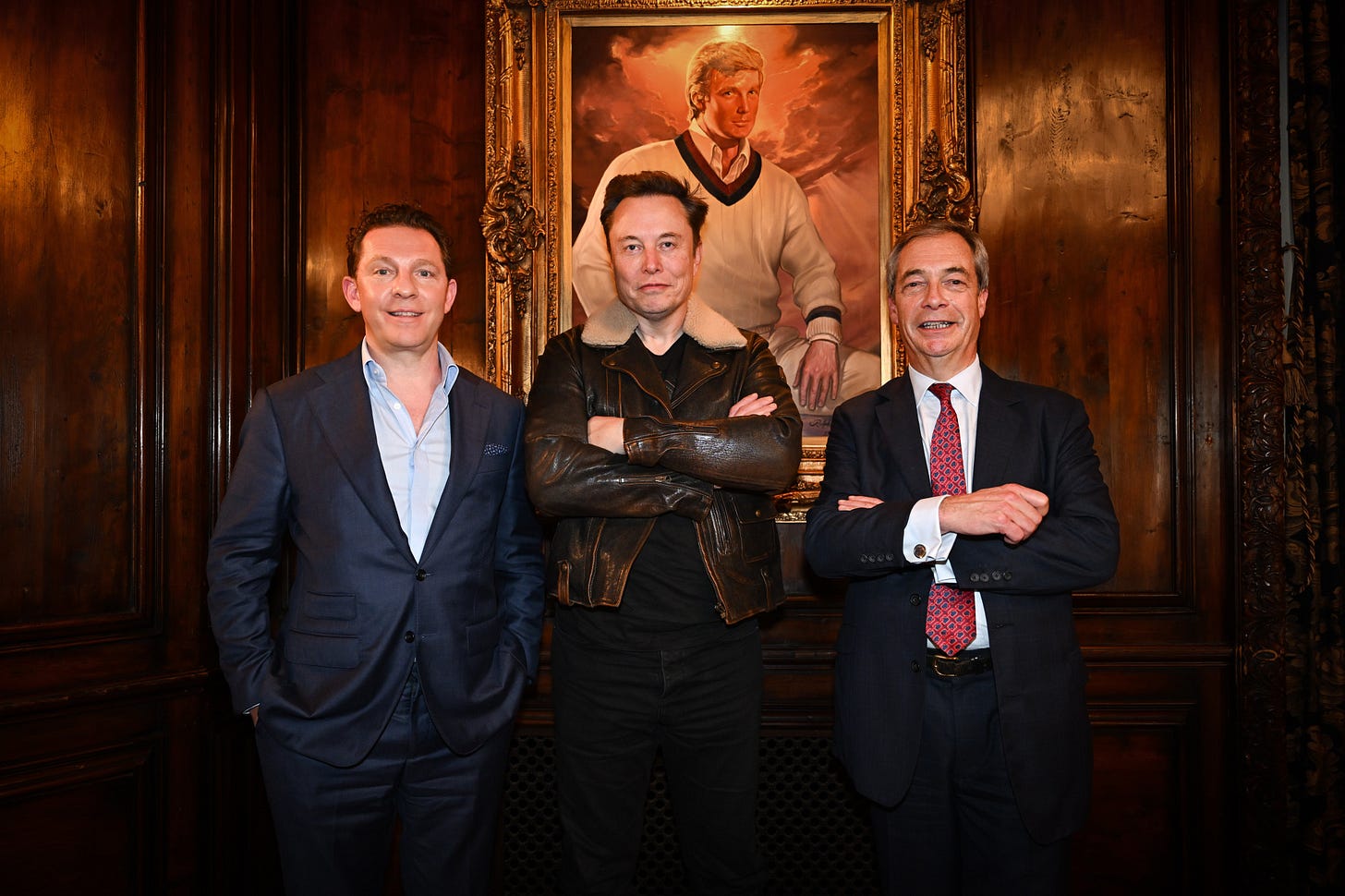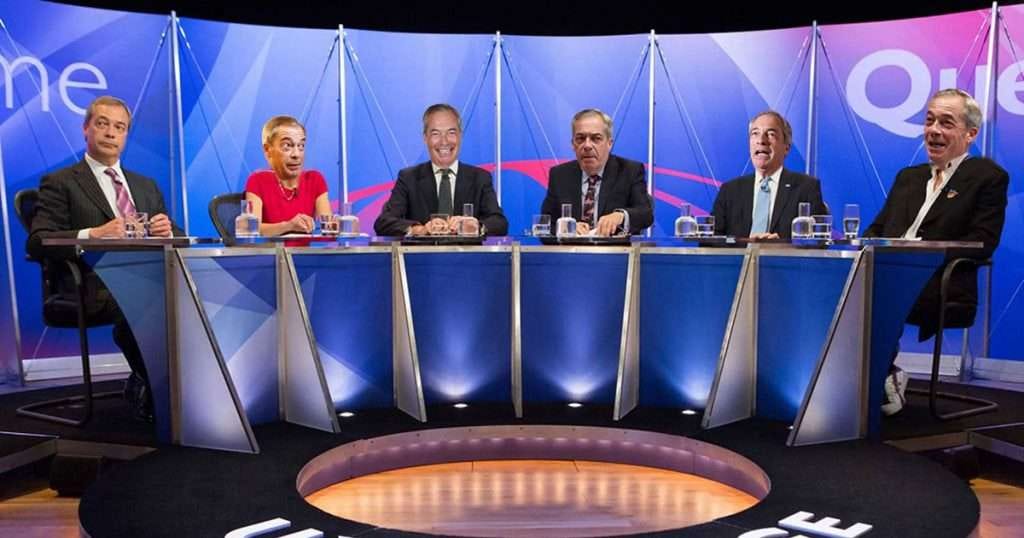The Plot Against Britannia
On delegitimising an elected government
Well, not so much a plot, as a boast
Impartiality is good but facts are facts and the Right and the centre Left are not the same. This time four years ago when Republican voters were asked whether they thought Joe Biden had won the recent presidential election fairly, only 44% agreed. Democrats were 89% convinced of the fairness of the vote. This time round Republican approval is up to 94%, while Democrats stand at 73%. Half of all Republicans had changed their minds simply because they won.
The outgoing president Joe Biden and Trump’s defeated opponent Kamala Harris will both attend the re-inauguration of Trump, where he boycotted theirs. Harris presided over the certification of Trump’s election where he incited a mob to try and prevent that of his predecessor. Video from the swearing in of new members of Congress showed one husband of a Republican victor refusing to shake Harris’s hand.
In the same way I don’t believe for five minutes that a Labour opposition would have called for an inquiry into a scandal (having previously not backed one) on the open prompting of a foreign billionaire. Everything is not everything else.
But the last few weeks have reminded me of something that is all too easily forgotten – which is the political right easily persuades itself that a centre left government is not just wrong, but fundamentally illegitimate. They don’t really think it should exist.
I first became really aware of this as a pathology when looking at how a section of the US right had reacted to the election of Bill Clinton in 1992. The intervention of a serious third party candidate, Ross Perot, allowed the Arkansas governor to win with 43% of the popular vote, ending the long Reaganite reign of Reagan himself and his successor, George Herbert Bush.
The Bushites were calm enough but almost immediately there was a surge in conspiracist accusations aimed at the Clintons; accusations which really took flight barely six months into the new administration when the deputy legal counsel to the White House, Vince Foster, shot himself in a Washington DC park.
Assisted by some lazy speculation among columnists in the “mainstream media” and the largely chimerical but endless Whitewater affair, a new cottage industry was created around the proposition that the Clintons were some of the worst crooks US politics had ever seen. Indeed, they were Mafiosi responsible for dozens of deaths, including Foster’s. Lurid stories were catnip to the unregulated and unchecked new news sites on the early internet, some of which morphed into the TV stations which would put pressure on outfits such as Fox News to skew their coverage to cater for a gullible and very right-wing audience.
There was a nexus of new media, right-wing publishers, far right multi-millionaires and professional grifters whose activities were summed up by a deserter from their ranks, David Brock, in his book Blinded by the Right. It was this nexus that was described by Hillary Clinton in 1998 when interviewed on NBC’s Today Show in this way:
This is—the great story here for anybody willing to find it and write about it and explain it is this vast right-wing conspiracy that has been conspiring against my husband since the day he announced for president.
It wasn’t a conspiracy of course because it wasn’t secret. But this delegitimising movement certainly made happy use of conspiracy theories. Hundreds of books, blogsites, radio shows and eventually Youtube channels and podcasts have been devoted to exotica such as the “Clinton Body Count”.
Mainstream Republicans by and large repudiated this kind of accusation, as Senator John McCain did when he slapped down suggestions during his 2008 election campaign against Barack Obama that his opponent was not a proper American. However eight years later the next successful Republican candidate for president, Donald Trump, partly owed his victory in his party’s primaries to his espousal of the “Birther” libel that McCain had angrily rejected.
It was a hop, skip and a jump from this to the accusation about the Biden election being rigged, to the mobilisation of armed militias during covid – both aimed at denying that a centre left government could possess as much right to rule as a right wing one. By contrast after last November’s defeat very few Democrats indulged in the accusation that Trump’s election was unfair. They began doing what the centre left always does when it is defeated - and entered a period of gloomy and self-lacerating introspection.
The enemy within? That’s us
That’s America. Here in the UK. there had been the talk of an anti-Labour, anti trade union “coup” in the mid 70s, but the nearest we had come to such an underlying assumption of illegitimacy was at the height of the Thatcher government and its “enemy within” period. The strident denunciation in a large section of the press of the morals, patriotism and basic decency of the Labour opposition made many of us who weren’t Thatcherites feel not just that we were disagreed with, but that our opinions were somehow unBritish.
The nearest until now. The relative success of Reform UK at the expense of the Conservatives last July has entirely eclipsed the gains of the Liberal Democrats and the Greens to create an atmosphere in which the public agenda – largely set by the media – has been dominated by questions formally to do with migration but actually concerned with ethnicity and religion. Trump’s triumph two months ago has given this fixation a further twist, creating neural pathways concerning the advance of the radical right in all of us. We don’t seem to be able to look away. It has become the only show in town.
In reality – when it comes to the lives of Britons - these questions are secondary. The rise in borrowing costs and the speculation that these might require the chancellor to seek cuts in public expenditure should be a reminder of the poisoned field that Labour inherited six months ago. And partly of the price of Starmer and Reeves ruling out tax increases in the form of employees’ national insurance contributions before the election. One consequence has been a series of squeaky-wheel initiatives as the chancellor has sought to find money from winter fuel payments, inheritance tax on land and VAT on private school fees. Losers are loud, winners (such as doctors and those on the increased minimum wage) are always very quiet. It should be more remarked upon than it is that Labour’s opponents, Left and Right, are generally against any new imposts whatsoever but also critical of anything that looks like a cut. Would the Liberal Democrats and Greens really have shelled out the billions needed to placate the entirely undeserving WASPI women? Did anyone ask?






